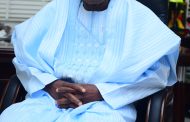Although intelligence as an instrument of statecraft is seen more as a domain of intrigue, cloak and dagger, it is a viable power resource. The craft to know ahead of time what an enemy might be up to can position an actor at an advantage even as nobody has been able to solve the problem of the ‘other mind’. Not even the lie detector has been able to tell us how to detect ‘ambiguous symbolisms’ that gives rise to ‘existential condition of uncertainty’ as a fact of human existence. That is why concepts such as intelligence or a claim of intelligence hit is always open to spoken and unspoken interrogation. Is it true? Who wants to do it? Why? And so on.
These are, naturally, the questions when the Buhari government says it has uncovered a plot to bring about turmoil that would eventually warrant overthrow of it. How did they know this and by what evidence since evidence in intelligence is, as noted above, problematic.
In the absence of any scientific answer anywhere in the world yet, the government can only have been using its power of interpretation, not objective evidence. Unschooled elements would say the DSS is most likely to have penetrated the alleged planners and have recorded evidence and all that. The question would then be why many governments across the world with even more clinical evidence on plots against them do not raise hell about it. In fact, most governments do not ever disclose such information because for a government to say that a coup against it is in the making is to pose a more complicated question: where does the thought of a coup or any act of political violence come from or when does thinking about a coup become an option for anybody?
Since even a million troops cannot overthrow a popular government, a government admitting fear of a coup might be doing something different from what it might think it is doing: the consequences of its own failures and spreading red herring for regime survival. And those who would toe this line of analysis would go on to argue that the better option than crying wolf would have been for the regime to use whatever information it has got suggesting turmoil as indicators of its own performance or lack of it. And then correct the performance gap to popular approval.
Other commentators may take the word ‘turmoil’ as a starting point and ask what that could mean. Or if there could be any turmoil worse than the number of Nigerians who have perished since early 2016 to date.
There are many other angles, none of which would lead to truth that is not relative. For regime ideologues, sympathisers and patrons, this is likely to be an intelligence hit. For critics and regime bashers, this claim of a planned turmoil cannot be anything but red herring and classic diversionary tactics. That is diversion of attention from disturbing number of persons currently being by kidnappers or bandits and sundry non-state actors about which the Nigerian State can do nothing.
Most patriots are bound to see this as a manifestation of poverty of the government in power in relation to viable, alternative options before it. Why, for example, might the government be unwilling or incapable of mobilising Nigerians against the generalised insecurity? Can it resolve the crisis without mobilising the elite and/or Nigerians? Can it successfully do that now with its pattern of recruitment of people into government for which it has been exposed as clannish?




























